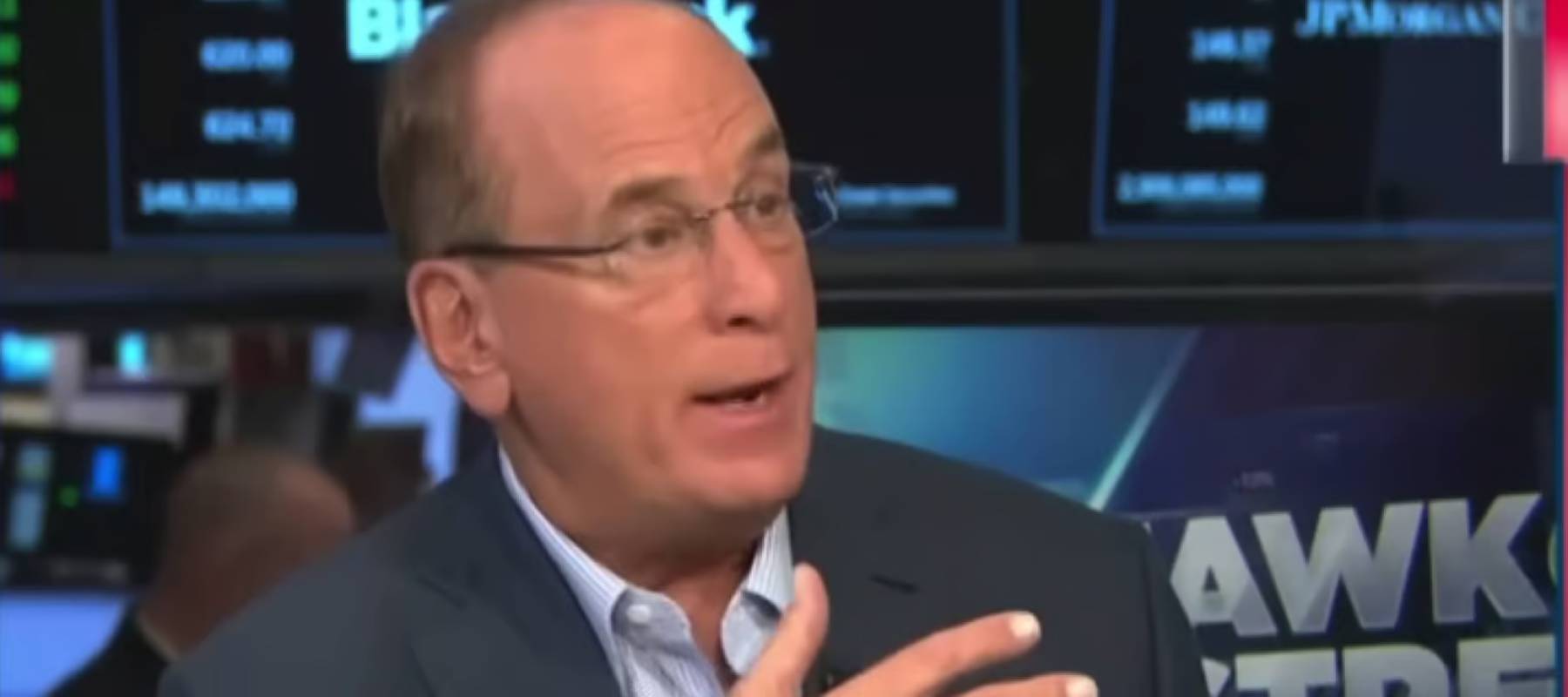If you're a noob investor, consider this your cheat sheet on the best way to invest money in Canada.
Your grandparents had a stockbroker. Your parents had a mutual fund advisor. You have robo-advisors, online brokers, and newfangled investing apps. Thanks to technology and the democratization of investing, it has never been easier for Canadians to start investing today and avoid the many mistakes made by previous generations of investors.
If you’re new to investing, you’ve come to the right place. This article will teach you how to invest in Canada and build a low-cost, globally diversified, and risk-appropriate portfolio. You’ll learn the best investing approach for long-term, reliable outcomes.
Why start investing?
Why do we even invest in the first place?
Valid question! Usually, it’s because we have specific goals to achieve, and investing helps us get there.
The obvious one is retirement. We need to save a bunch of money to support ourselves when we’re no longer collecting a paycheque.
But we’re also concerned about inflation. As the cost of living rises, it decreases the purchasing power of a dollar. As a recent example, the annual inflation rate in Canada was 3.4% as of May, 2023 . So if you keep your cash stashed under the mattress for 20 years, it will lose value over time.
Investing our money today helps us beat inflation and prevent it from watering down the potency of the dollar. It lets you take advantage of the magic of compound interest and thereby grow your savings so your future self can enjoy the same (or better) purchasing power tomorrow.
Choose the right investing style
Before you jump into investing with both feet, it’s important to take a step back and establish your goals and priorities. Here are a few things to consider.
Decide how much to invest
Deciding how much to invest isn’t simple, but your age is a good place to start.
A Fidelity study estimates that you need 10x your pre-retirement income saved by age 67 to maintain your lifestyle in retirement. Here’s a breakdown by age:
A general rule is to invest 10% of your gross income per year for retirement. But this depends on your income, too. Young investors living on a budget may only be able to afford to invest 3% to 5% of their gross income. Whereas late starters with higher incomes can be more aggressive, investing 15% to 25% of their salary to make up for lost time.
Obviously, if you start investing early, your money will have more time to compound and grow. If you’re in your 20s, you have time on your side and can start investing with very little money. For instance, an initial investment of $4,000 at age 23 may balloon to as much as $522,576.11 in 30 years (assuming 8% growth compounded monthly).
Determine your risk tolerance
Here’s the million-dollar question: how much risk are you willing to take?
Every type of investment comes with a certain level of risk, which is often linked to the potential return. Generally speaking, the more risk you’re willing to take, the greater the return. A few examples:
- GICs are considered the safest investments in Canada, but the best GIC rates usually range between 1% to 3%, depending on the term.
- Bonds are considered a low-risk option that helps balance out your portfolio during tumultuous times.
- Stocks are more volatile, going through “bear” and “bull” markets where the market rides a rollercoaster of ups and downs. We saw this most recently during the stock market crash during the COVID crisis. As a result, on average, the stock market returns around 9% to 10% per year.
- Cryptocurrency is one of the most volatile investments you can make. Case in point: the value of Bitcoin increased by more than 90% during the COVID-19 crisis. But in May 2021, the Bitcoin price plummeted 40% simply because China decided to crack down on crypto.
Investing is a balancing act. The goal is to build a “risk-appropriate portfolio,” meaning a set of investments that match your risk tolerance. But how do you determine your risk tolerance?
Do some self-reflecting. Do market ups and downs make you feel pukey and panicked? Do you sleep better at night with a bond buffer in your portfolio? Or are you game to go “all-in” and build a portfolio of 100% stocks? Be realistic!
Consider your financial goals and your timeline to take risks. A recent university graduate’s portfolio will look different from a person close to retiring. In your 20s, you have decades to recover from a market crash, whereas a retiree could stand to lose their livelihood.
Determine your asset allocation
Once you’ve figured out how much loss you can stomach and afford, it will shape the makeup of your investment portfolio. Specifically, how much of it to allocate towards stocks and bonds. Here are some examples:
- Low risk: Typically contains 40% stocks and 60% bonds or other fixed-income securities.
- Medium risk: Typically contains 60% stocks and 40% bonds.
- High risk: Typically contains as much as 100% stocks.
When constructing and rebalancing your portfolio, always remember that diversification is key. Never let your portfolio rely too heavily on a particular industry or bond type. A well-diversified portfolio is more sustainable and hedges you against unforeseen changes in the economy.
If you have no clue or your eyes are glazing over, don’t worry. There’s an easy solution. Just hand over the task to a robo-advisor.
A robo-advisor is a digital investment platform that can build a balanced investment portfolio to match your risk tolerance and goals. With a robo-advisor like Wealthsimple, all you have to do is answer an online questionnaire, and it will put together a risk-appropriate, diversified investment portfolio. It also does the work of managing your portfolio.
Choose between active vs. passive investing
Next question: how hands-on do you want to be with investing?
With a passive investing approach, you’re buying the entire stock market, which will deliver average market returns minus a small fee charged by index funds or ETFs. It’s the “set it and forget it” approach. You’re stashing your cash into an investment portfolio and leaving it there for the long term.
An active investing approach means hiring a fund manager (in a mutual fund or ETF) to actively manage your portfolio and try to beat a benchmark, but it means paying more in fees. Alternatively, you can act as your own fund manager and pick your stocks or ETFs using an online brokerage.
But which approach performs better?
The jury is out: Research strongly supports that passive investing outperforms active investing. While active investing can outperform the market over shorter periods, it is impossible to pick winning stocks with any long-term consistency and reliability. Unless you’re psychic, that is.
The bottom line: Taking a “lazy” approach to investing pays off, and timing the market usually doesn’t work. Building a risk-appropriate portfolio of low-cost, globally diversified index funds or ETFs is the best and most reliable way to achieve long-term investment returns.
It may seem boring, but “getting rich the slow way” does work. Eighty percent to 95% of active investment strategies fail to outperform their benchmark over the long term. Plus, active funds cost more than passive funds, which eats into your returns.
But we don’t want to be a total buzzkill. You might get excited by the opportunities presented by a hot new IPO or the thrills of trading cryptocurrency. That’s okay!
One way to enjoy the best of both worlds is to take a “core and explore” approach. Keep 90% to 95% of your portfolio invested in low-cost passive index funds (core) and use the remaining 5% to 10% of your portfolio to scratch your stock-picking itch (explore). Just do your research and use value investing as an approach.
Decide what to invest in
Once you decide on an investing style, how do you know what to invest in?
You’ve got a buffet of options: individual stocks, index funds, ETFs, mutual funds, bonds, GICs, and alternatives such as cryptocurrency or gold. Take a look at this brief overview of the options:
Stocks
Stocks are the shares (parts) of a company listed on a stock market for people to purchase. Buying shares in a company means owning a small share of the company’s future earnings. With ownership come voting rights and a portion of the profits earned by the company.
Most stocks today are available as common stocks. Common stocks give the holder the right to vote and elect the board members of a company (i.e., the individuals in charge of major decision-making). Common stocks also represent a portion of profits distributed by the company in the form of dividends. Payment of these dividends takes place annually or semi-annually, depending on the company’s policy.
Owning individual stocks is risky since there’s a chance the company loses money and even goes out of business in the future. That’s why it’s important for investors to diversify their portfolios by holding many different stocks.
Risk level: Medium to high
First, the risk depends on the stock. Mature, profitable businesses with distinct competitive advantages are less risky than a small start-up that has yet to establish its profitability.
Think of Tesla. It’s one of the most valuable companies in the world, even though it sells fewer cars than most, if not all, other automakers. Tesla would be considered a risky “growth stock,” with immense potential for gains but also a strong chance of losing money. On the flip side, a blue-chip company like Microsoft has been around for decades and established itself as a profit-generating machine. Microsoft’s future earnings are much more predictable than Tesla’s, so investors can expect to earn steady and reliable returns.
Risk also depends on your asset allocation. For instance, investing in a single stock and nothing else leaves you with little to buffer the blow from a market crash.
Average return: 9% to 10% per year
Index funds
Speaking of diversification, an index fund is a mutual fund that holds all stocks in a particular market index (like the S&P 500). That’s right! An index fund tracking the S&P 500 would hold all 500 stocks in proportion to their size and track their performance. The index fund’s performance would mirror the S&P 500’s performance, minus the small fee charged by the index fund manager.
Index funds can track all kinds of markets, from Canadian stocks, U.S. stocks, international stocks, and emerging markets. You can even buy bond index funds that hold thousands of government and corporate bonds.
Risk level: Low to medium
It depends on your portfolio allocation. An index fund that is 100% invested in stocks will still be inherently riskier than a balanced portfolio that contains bonds and/or cash. But an index fund can still lose money in a short period, such as during the coronavirus market crash.
But index investors buffer this risk through diversification. Instead of betting on a few companies, they spread out their investments and own all the companies in a particular index.
Average returns: 6.2% and 7.8% per year
ETFs
An exchange-traded fund (or ETF) is an investment fund that lets you buy a large pool of individual stocks or bonds in one purchase. It can track stock indexes like the S&P 500, different commodities, bonds, or a bunch of assets grouped together. ETFs trade like a standard stock on the stock market, with price fluctuations being observed as they’re traded. It distributes ownership of the whole pool of assets into a single share, ready to be traded like a common stock.
Besides making capital gains on ETFs, investors also benefit from profits distributed in the underlying ETF asset pool, such as dividends and interest.
ETFs are a good option for people looking to invest in a low-cost, diversified portfolio. Such folks can invest in well-known stock indexes without worrying about individual company stock prices or performance.
Risk level: Low to medium
ETFs hold baskets of stocks and/or bonds just like index funds. So they help diversify your portfolio and balance the risk of owning too few securities in your portfolio. Again, this doesn’t mean that ETFs are less risky than stocks regarding short-term performance. ETFs can lose money over the short term if the market they are tracking falls in price.
Average returns: 6.2% and 7.8% per year, depending on which market(s) they are tracking.
READ MORE: Top ETFs in Canada.
Mutual funds
A mutual fund is a pool of various stocks and bonds grouped in a single investment portfolio. The fund managers assimilate the different assets into shares and calculate the share price daily under the price fluctuations of each asset within the pool.
Investing in a mutual fund differs from stocks or bonds as the pool represents a collection of various assets. Investors earn money when the stocks within the pool generate dividends and interest payments from the bonds. Assets sold by the fund at a higher price also create a capital gain distributed by the fund to its shareholders.
Mutual funds can be active or passive. An actively managed mutual fund has a manager at the helm making investing decisions and trying to beat a benchmark (i.e., “the market”). A passively managed mutual fund, also known as an index fund, can track all kinds of markets, such as Canadian stocks, U.S. stocks, international stocks, and emerging markets.
Canadian investors have nearly $2 trillion invested in mutual funds as their investment of choice. Unfortunately, Canadians pay some of the highest mutual fund fees in the world, with costs ranging from 2% to 3%.
Risk level: Low to medium
Mutual funds typically hold a wide variety of stocks and/or bonds. So from a diversification standpoint, they are less risky than owning a few individual stocks.
However, like with ETFs, the risk of a particular mutual fund depends on the underlying holdings (or what’s in the basket). A 100% stock mutual fund is riskier than a balanced fund with a mix of stocks and bonds. But a bond mutual fund is considered a low-risk investment.
Average returns: 6.2% to 7.8% per year without fees. If a Canadian equity mutual fund charges an MER of 2.2%, then expect between 4% and 5.6% per year (net of fees).
READ MORE: Mutual fund basics
Bonds
Bonds are issued mainly by companies, governments, and municipalities (provinces/cities) to raise cash in exchange for timely payment of interest on a fixed rate. Bonds are a form of debt, and as an investor, you are lending money to a government or corporation in exchange for a fixed interest rate (or coupon). Investors can purchase federal government bonds (the safest), provincial government bonds, corporate bonds, and “junk” bonds issued by riskier companies.
Bonds are generally considered a safer option than the stock market and act as the ballast that steadies the investing ship when waters get rough. People who don’t want to take risks or invest heavily in the stock market can consider diversifying their portfolios by purchasing bonds. You can also diversify your bond holdings by purchasing a bond mutual fund or bond ETF, which will hold many hundreds of individual bonds in one basket.
A downside: Since bonds are considered less risky, their returns are also significantly lower than the stock market.
Risk level: Low
A bondholder is a loaner, not an owner, and should expect to receive interest payments plus the return on their principal investment when the bond matures. Federal government bonds are among the safest investments, followed by provincial bonds, high-quality corporate bonds, then lower-quality corporate bonds.
Bonds are also sensitive to interest rate movements. When interest rates rise, bond prices fall (and vice versa). Bonds with a longer duration, such as long-term federal government bonds, are more sensitive to rate movements than short-term bonds.
Average returns: 2.7% per year
GICs
A Guaranteed Investment Certificate (GIC) is a type of investment that pays you a guaranteed interest rate. In exchange for your principal investment, a GIC pays a fixed annual interest rate for the duration of a fixed-term (often 1-5 years).
GICs offer the safest form of investing, albeit with the lowest expected return. GICs are best used for short-term goals. They’re a way to keep your principal investment safe while earning enough interest to hopefully keep pace with inflation.
Risk level: Very Low
GICs offer guaranteed returns, making them a safe haven for short-term investing needs.
Average returns: 2% or less
Cryptocurrency
Cryptocurrency is a digital, alternative form of currency not regulated by any central bank. Instead, it’s managed by the people who use and buy it. Cryptocurrency trading is gaining more attention as an alternative to traditional investments, with Bitcoin and Ethereum being among the largest and most popular cryptocurrencies to invest in.
The good news: It’s never been easier to invest in crypto. Crypto exchanges and indexes are popping up, and you can even invest your TFSA or RRSP in the Bitcoin ETF. FinTech giant Wealthsimple even launched Canada’s first regulated cryptocurrency trading platform called Wealthsimple Crypto, an online platform that allows investors to buy and sell crypto for free.
The bad news: The world of cryptocurrency is largely unregulated and highly volatile. There are no perfect indicators for predicting the price of cryptocurrencies. It’s purely based on individual demand and supply speculation.
The bottom line: Expect extreme ups and downs and dedicate a small percentage of your portfolio to crypto investing rather than your entire life’s savings. Otherwise, you risk losing some – or all – of your money.
If you have the stomach to play a higher-stakes game, investing in cryptocurrency could be for you. Just reduce your risk by trading on a reputable cryptocurrency exchange and diversifying your investments.
Risk level: Very high
Cryptocurrency offers casino-like odds where investors can lose most (if not all) of their money in a short period.
On the other hand, we’ve seen incredible returns in the 1000%+ range, depending on how long you HODL.
If you buy and hold for the long term, your patience and grit may pay off.
Average returns: N/A — investing in cryptocurrency is pure speculation.
Ask the eight ball
Want to learn more about the magical world of investing? Shake the sphere for eight financial facts.
For fun investing facts
Choose an investment vehicle
Which account should you invest in?
We have RRSPs, TFSAs, and RESPs, as well as taxable (non-registered) accounts. In general, it’s best to focus on using up all the available contribution room in your RRSP and TFSA before you start investing in a non-registered account. And you should start with your TFSA if you’re earning an entry-level salary or your salary is below $50,000. Higher-income earners should prioritize their RRSP first before their TFSA.
RRSP
An RRSP is a type of retirement savings plan that allows you to grow your savings in a tax-deferred manner. You can hold a range of investments inside an RRSP, including stocks, bonds, ETFs, mutual funds, and GICs. In 2023, the maximum RRSP contribution is 18% of your gross income or $30,780, whichever is lower.
The benefit is that you receive a tax deduction on any RRSP contributions, which reduces your taxable income for that year. However, you will pay taxes on any withdrawals. Ideally, it’s best to contribute to an RRSP during your high-income-earning years and withdraw in retirement when your income is lower.
RESP
An RESP is a tax-sheltered investment account specifically to save for a child’s post-secondary education or training. You won’t pay income tax on the earnings generated on cash or investments held within an RESP, including bank interest, dividends, capital gains, or any other investment income. But you also won’t receive any tax deduction on your contributions. A good reason to invest in an RESP is that the Canadian government provides a 20% Canadian Education Savings Grant (CESG) on annual RESP contributions, up to $500 annually and $7,200 in total per child.
If the child doesn’t attend an eligible post-secondary institution or training program, then the sponsor of the RESP will get back their original contributions tax-free (since RESP contributions are made with after-tax income). The sponsor may be able to transfer the investment earnings to their RRSP tax-free (if they have enough contribution room); otherwise, they will pay income taxes on the investment earnings at their marginal rate. All grant money, however, must be repaid to the government.
Many Canadians grapple with whether to save for their child’s education or retirement, so read our article on RESP vs. RRSP.
TFSA
A Tax-Free Savings Account is a registered account in Canada that offers special tax benefits. Like an RRSP, a TFSA allows you to grow your savings tax-free and can hold most investment assets, including cash, GICs, mutual funds, stocks and bonds.
You won’t ever pay taxes on TFSA withdrawals, and you won’t pay any taxes on your investment growth, dividends, or interest. On the flip side, you won’t receive a tax deduction when you contribute to your TFSA. For 2023, the annual contribution limit is $6,500. Canadians who were at least 18 years of age in 2009 can have up to $88,000 total in a TFSA.
TFSAs are an ideal place to park your short-term savings because the funds can be withdrawn at any time tax-free. For long-term investments, TFSAs are a good savings vehicle if you are young, earn a lower income, and/or expect to be in a higher tax bracket down the road. That’s because the taxes you’d save now by making an RRSP contribution would be minimal. In that case, it might be better to make TFSA contributions instead and save your RRSP contribution room for higher income-earning years.
Non-registered
A non-registered account is often called a taxable account, a cash account, a trading account, or a margin account (depending on the investment platform you use). Whatever you call it, know that investments held inside this account aren’t sheltered from tax, so you’ll pay capital gains tax when you sell an investment for more than you paid for it, plus you’ll pay tax on any dividends or interest received inside this account each year.
Decide where to invest money in Canada
The two easiest ways to invest today are a digitally managed account with a robo-advisor, or an online brokerage account to self-manage your investments. The robo-advisor is hands-off since your portfolio is automatically selected, invested, and rebalanced for you by an algorithm. The online broker is hands-on and allows investors to build their own portfolio on the cheap.
Robo Advisors: For first-time investors
A robo-advisor is a great way for new investors to start building a portfolio while keeping costs low. All you have to do is answer an online questionnaire. The computer algorithm builds a personalized portfolio of low-cost ETFs and index funds geared to your risk tolerance and financial goals.
READ MORE: The best robo advisors in Canada
Online brokers: For DIY investors
Do-it-yourself investors can skip the robo-advisor management fees and invest on their own for a song. All you have to do is go online, open a discount brokerage account, and pick your own investments.
Next steps
Putting this all together, you’ve carved out a reasonable portion of your paycheque to build your long-term investments.
You’ve taken a good look at yourself in the mirror, determined your capacity for risk, and decided on an appropriate asset mix of stocks and bonds. You’ve chosen an investment style that fits your personality and long-term goals.
You’ve determined the appropriate investments to buy and which account to buy them in.
Finally, you’ve decided on a suitable investment platform that ticks all the boxes for your investing needs.
Now you’re ready to take the plunge. Want someone else to handle the investing for you? Open an RRSP or TFSA account at a robo-advisor and make that first deposit to get started.
Or, if you’re a hands-on investor, open an online broker account, deposit your funds, and buy your first stock or ETF.
Remember, someone’s sitting in the shade today because someone planted a tree a long time ago. Go plant that tree!
*With files from Bridget Casey
FAQ
Disclaimer
The content provided on Money.ca is information to help users become financially literate. It is neither tax nor legal advice, is not intended to be relied upon as a forecast, research or investment advice, and is not a recommendation, offer or solicitation to buy or sell any securities or to adopt any investment strategy. Tax, investment and all other decisions should be made, as appropriate, only with guidance from a qualified professional. We make no representation or warranty of any kind, either express or implied, with respect to the data provided, the timeliness thereof, the results to be obtained by the use thereof or any other matter.





